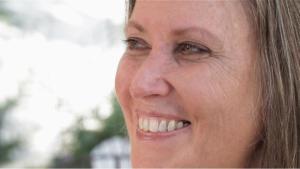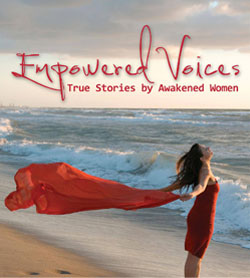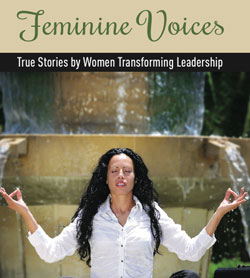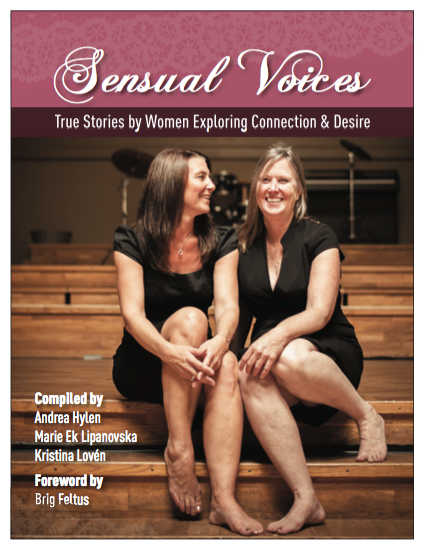 (Originally published in On Purpose Woman Magazine March 2019)
(Originally published in On Purpose Woman Magazine March 2019)
By Andrea Hylen
Have you heard about the tests that are available now for finding out about your ancestry? By swabbing the inside of your cheek or spitting into a test tube, there are tests to identify which ancestral tribes you belong to. The key is the word belong.
We all want to know who we are and where we belong.
Who we become is influenced by our lineage, our culture, ethnicity, and gender. We
are influenced by women in our lineage on how we see the world and what we think is possible. By exploring this influence, we have the power to understand and change experiences with power, money, work, relationships and health.
An example from my life surfaced after the death of my 2nd husband, when I was
thrust back into the job market. I had a career for ten years until our son was born with a congenital heart defect and when my husband died, I had been out of the job market for fifteen years. I began to do some inner work around my beliefs and fears around money and work.
Some of the memories I uncovered:
*my mother referring to money as “your father’s money.” (He had a job. She was a full-time homemaker with no salary.)
*being told to let the boys win at kickball so they would like me. (Do not compete and don’t show how smart you are.)
*the worry of relatives about who was going to support me financially when my first husband and I divorced in 1987. (My husband and I made the same amount of money in our jobs at the time of our divorce. Age 32.)
I graduated from college in 1980 when the women’s movement was opening doors for job equality for women. While in college, I knew I wanted a career outside of the home and I wanted a family. It wasn’t until I was married with two small children and a career as a project manager in epidemiology that I began to understand the path that had not been carved for me.
I had a career and I also had a full-time job as a homemaker. My income was valued and was needed to cover the basic cost of rent, food, car and student loans. But there was no support, at home, for career advancement like when I needed to take classes on Saturday or travel for work. The expectation was that I would “bring home the bacon and fry it up in a pan.” I would drop the kids off and pick them up at day care, then come home and cook and clean. I would do it all. Career and a homemaker. There were no role models or mentors. The “beliefs” and expectations were in me and in my husband. I was a parent. He was a babysitter.
When I began to look at how my beliefs around money and work were limiting me, I looked at the lineage of women in my family and asked questions:
*Did anyone work outside of the home?
*What limitations were placed on women around money?
*What opportunities did women have?
My mother graduated from Northeastern University with a bachelor’s degree in business in 1954. Her first job was a secretary because it was assumed that she would get married and have children and leave her job. My dad’s job included travel and relocation of the family every few years so a job outside of the home wasn’t an option for my mom.
As I continued to explore my lineage, I discovered that money tied in with a lot of the dynamics of power and patriarchy. Money belonged to men and women had to ask permission to have it.
By looking at women’s history and laws regarding money between 1956, the year I was born, and 1980, the year I graduated from college, more answers helped me develop a deeper understanding around the beliefs and conditioning I was experiencing.
In 1974, the Equal Opportunity Act was passed. Until then, women had to have a man cosign any credit applications regardless of income. This was one Act that was passed because of the women’s movement and one of many reasons, women had not had power with money until the 1970’s and 1980’s. Women had to ask men for permission. Exploring beliefs, learning about history has helped me to heal judgements of myself, my mother and my grandmother, reclaim my personal power and make different choices. It has helped me to heal my lineage and implement change.
The #metoo movement is another example of healing our lineage as women. As we uncover similar stories and experiences, we see how connected we are to one another and why women didn’t and couldn’t report abuse. What are we learning now and how do we heal our lineage and make changes for the future?
Here are a few ideas:
*Read the history of women. Raise your awareness of rules that governed your mother and grandmothers. Raise your awareness of how they (and women from their generation) lifted the bar and the ceiling for you. Stop judging their limitations.
*Celebrate women and appreciate the advancements from the past.
*Take action. Challenge yourself to join with women and men to change things in your home and communities.
*Mentor younger women and cheer them on.
I leave you with a few questions to explore:
*What years were your grandmother and mother born?
*What was happening in history during that time? Specifically, what was happening in women’s history and the history of your race and ancestry?
*Write a list of appreciation for what has changed in your lineage. Begin with “Women have the right to vote.’
*What is one step you can take to support change for the next generation?
Andrea Hylen Founder of Heal My Voice, Author of Heal My Voice: An Evolutionary Woman’s Journey. Creator of The Writing Incubator, on-line writing community. www.andreahylen.com









{ 0 comments… add one now }